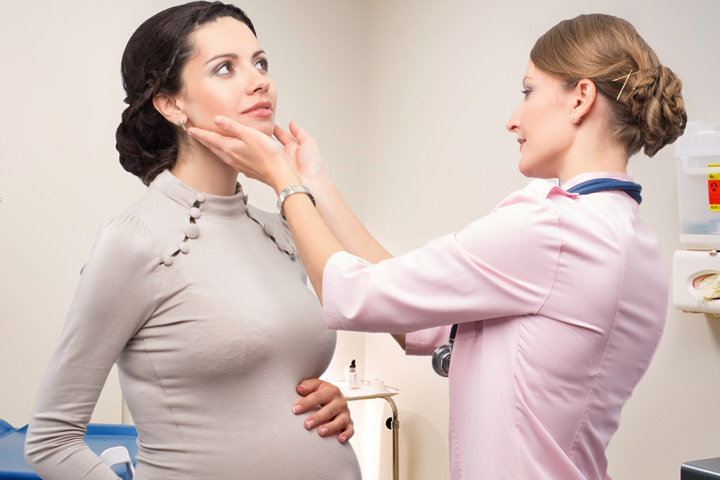A third of pregnant women have iron deficiency, putting them at increased risk of having a thyroid disorder and suffering complications such as miscarriages and preterm births. These are the conclusions of a new study published today in European Journal of Endocrinology.

Pregnant women need to make enough thyroid hormone for the full development of their babies’ brains, which is especially critical during the first semester when the fetus hasn’t developed a thyroid gland of its own. Thyroid autoimmunity is a disease where the immune system mistakenly destroys healthy thyroid cells; causing thyroid hormone levels to fall. It can be particularly dangerous for pregnant women.
Iron is important for the normal functioning of thyroid peroxidase (TPO), a protein essential for the correct functioning of the thyroid. Iron deficiency affects one in five of the world’s population, but can be more prevalent in pregnant women, who need triple the daily requirements to make more red blood cells and help the fetus and placenta grow.
In this study, researchers from the Saint-Pierre University Hospital (ULB) in Brussels followed 1900 pregnant women in their first trimester. They measured the women’s blood ferritin (an indicator of iron deficiency), antibodies against the thyroid peroxidase (indicating thyroid autoimmunity), the thyroid hormone free thyroxine (FT4) and thyroid stimulating hormone (TSH). TSH measurements are considered the most sensitive screening test for thyroid disease, as a doubling in FT4 produces a hundredfold change in TSH.
Ferritin levels showed that 35% of the pregnant women were iron deficient. Measurements of thyroid peroxidase antibodies then showed that 10% of the women in the iron deficient group suffered from thyroid autoimmunity, compared to 6% in the non-deficient group. Levels of TSH indicated that 20% of women in the iron deficient group had subclinical hypothyroidism, compared to 16% in the non-deficient group. The researchers accounted for the age and BMI of all pregnant women.
“Considering that our study took place in a relatively wealthy country, our results show that even in 2016 iron deficiency remains an important problem,” said Dr Kris Poppe, lead author of the study and Head of the Endocrine Clinic at Saint-Pierre University Hospital.
“Women should be checked for iron deficiency during pregnancy, and ideally before too. Iron supplements should be given out to decrease a number of established pregnancy complications, but it needs to be proven whether they can decrease thyroid problems too.”
The researchers’ next step is to find out whether pregnancy outcomes were affected by the higher rates of thyroid autoimmunity, iron deficiency or both. They will also investigate whether it is iron deficiency that causes thyroid autoimmunity or the other way around, though other studies support the first of these two hypotheses.